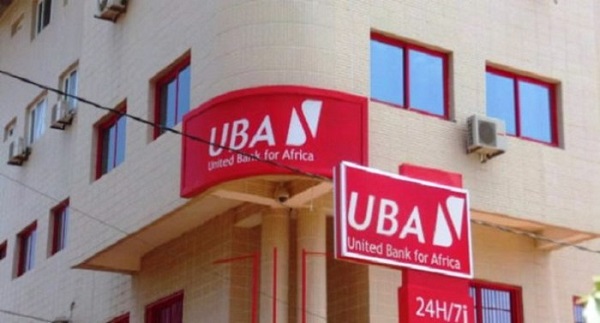Fitch Ratings has affirmed United Bank for Africa (UBA) Plc’s Long-Term Issuer Default Rating (IDR) at ‘B-‘ with a Stable Outlook.
Additionally, Fitch has upheld the bank’s National Long-Term Rating at ‘A+’ and assigned a Stable Outlook, underscoring UBA’s stability amidst a challenging operating environment.
The agency attributes UBA’s IDR to its standalone creditworthiness, as reflected by its ‘b-‘ Viability Rating (VR). However, Fitch also acknowledges constraints imposed by Nigeria’s Long-Term IDRs, primarily due to the bank’s high sovereign exposure relative to capital and its concentrated operations within Nigeria.
UBA’s National Long-Term Rating strikes a balance between its robust franchise and higher leverage compared to its higher-rated peers.
Fitch acknowledges UBA’s position as a strong player in the Nigerian banking sector, with a pan-African franchise encompassing subsidiaries in 20 countries outside of Nigeria. These subsidiaries accounted for a significant 46% of UBA’s net income and 39% of its assets as of the close of 2022.
The agency commends UBA’s ability to capitalize on business and trade flows, as well as its prowess in attracting deposits across the continent, highlighting it as a competitive advantage over its peers.
However, Fitch also raises concerns over UBA’s high sovereign exposure, which, while moderate in terms of single-obligor credit concentration, poses potential risks. The 20 largest loans represent 113% of UBA’s Fitch Core Capital (FCC) as of the end of 2022. Notably, UBA’s exposure to the oil and gas sector stands lower than that of its peers, mitigating some risks. Nevertheless, UBA’s exposure to the Nigerian sovereign through securities and Central Bank of Nigeria (CBN) cash reserves remains considerably high relative to its FCC, surpassing 350% as of the end of 2022.
Operating in Nigeria’s dynamic business landscape, UBA, like its peers, faces ongoing challenges such as US dollar shortages and the Central Bank of Nigeria’s (CBN) burdensome cash reserve requirement. Fitch anticipates progress in reform initiatives under the new administration, including the phased elimination of fuel subsidies and a gradual liberalization of the naira.
However, the agency highlights a potential risk of sharp naira depreciation due to significant disparities between the official and parallel exchange rates. In response to rising inflation (22% in April 2023), the CBN has implemented policy rate increases totaling 700 basis points since April 2022, with the current rate standing at 18.5%.
The affirmation of UBA’s ratings by Fitch in the face of a challenging operating environment underscores the bank’s resilience and strategic positioning. UBA’s pan-African strength and competitive advantage in capitalizing on business and trade flows position it favorably amidst regional expansion efforts. However, as Nigeria’s banking sector grapples with ongoing reforms and currency volatility, UBA must navigate the potential risks associated with high sovereign exposure and leverage concerns.
UBA’s commitment to maintaining stability, capitalizing on its strong franchise, and embracing evolving market dynamics reaffirms its position as a leading player in the Nigerian banking landscape. Fitch’s endorsement of UBA’s ratings and Stable Outlook acknowledges the bank’s prudent risk management practices and underscores its ability to adapt to changing market conditions. As Nigeria continues on its path of economic transformation, UBA’s strategic vision and pan-African presence position it to seize emerging opportunities and solidify its position as a key financial institution in the region.
Norvareports





